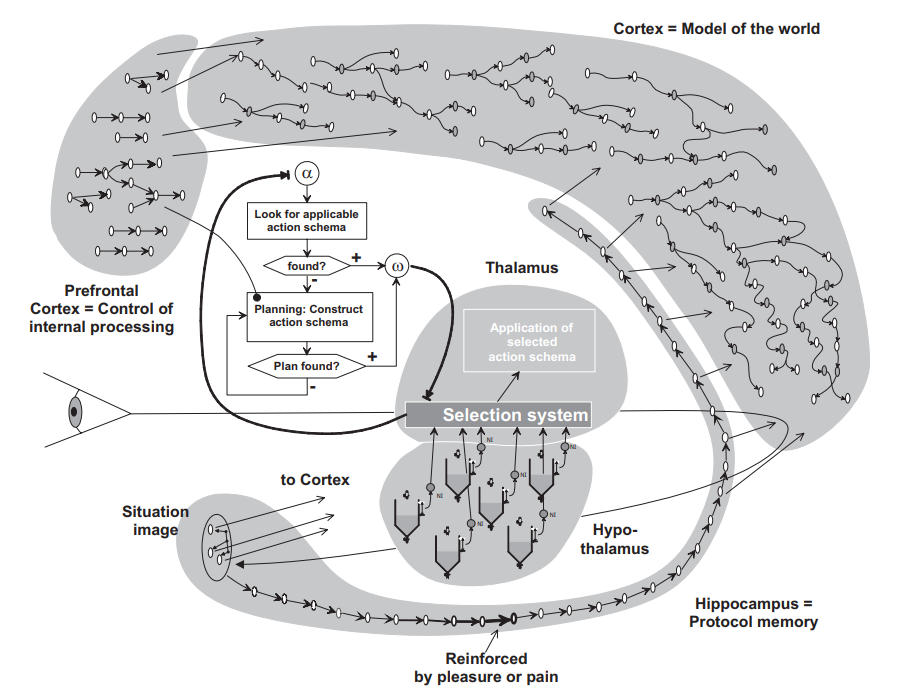Psi: A Computational Architecture
November 20, 2020
Psi (introduced 1999; this paper 2013) is a formalized computational architecture that simulates cognitive, motivational and emotional processes in their interactions.
Covers 14 of the 22 major areas of cognitive functioning (DARPA): memory, learning, executive processes, language, sociality/emotion, consciousness, knowledge representation, logical reasoning, elementary vision, object perception, spatial perception, spatial cognition, attentional mechanisms, and motivation.
Yet, we also would like to mention that certain psychological processes such as language or self-reflection are not yet simulated in great detail in PSI.
Cf. also MicroPsi implementation in Java, MicroPsi 2 in Python. Microsoft’s open-sourced Platform for Situated Intelligence (C#).

MicroPsi
Bach’s presentation. Cf. longer version of slides. Featured in MicroPsi: Grounded representations, emotions as configuration of the system, motivation (system can set its own social/cognitive goals). (Hyper-)Graph based architecture. In paradigmatic, but not computational opposition to logic, rule, neuromimetic, hybrid based systems - concept node (essentially KB?) as a core building block. Spreading activation (what?) nets as a special case of message passing. An agent is a network of nodes. Current applications: modeling human problem solving; social planning. Hotheaven AG (Berlin School of Mind and Brain).
Some general notes from the talk
AGI encompasses creativity, empathy, etc. Cogsci morphed into neurosci, which is now concerned with AGI. A combination of important topics:
- autonomous decision making, reflection, adaptation
- acquisition and control of internal complexity
- perceptual processing
- cognitive operations, language, logic
- environmental interaction (other agents & the world)
- resource management: attentional processing, anytime characteristics (works even if interrupted before completion)
Problems (MicroPsi is concerned with?):
- percept encoding (bottom up), hypothesis formation (top down), modal and amodal
- fuzzy processing (operations on mental representations; analogies)
- localist, combinatorial processing domains (?): planning, language, construction